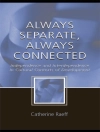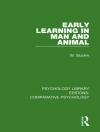Emerging Practice in Focusing-Oriented Psychotherapy brings together some of the world’s most influential contemporary psychotherapists in the field to look at the future of Focusing-oriented approaches.
Focusing-Oriented Psychotherapy – a form of therapy that involves listening to the innate wisdom of the body – is a dynamic and growing field that has evolved greatly since Eugene Gendlin first published the text Focusing-Oriented Psychotherapy in 1996. This book explores recent innovations such as Focusing-Oriented Psychotherapy as a response to trauma, Wholebody Focusing, and how Focusing has been adapted in Japan and South Korea. One section looks at specific contemporary issues and emerging practical applications of Focusing-Oriented Psychotherapy, such as how Focusing can be used in wellbeing counselling and to help decision making processes in counselling and therapy. By offering new alternatives to working effectively with difficult issues and specific client groups, this volume will appeal to a broad range of therapists, coaches, and other practitioners.
Jessica Kingsley Publishers also publishes a companion volume, Theory and Practice of Focusing-Oriented Psychotherapy: Beyond the Talking Cure, edited by Greg Madison [9781849053242].
Inhaltsverzeichnis
Acknowledgements. Foreword. Mary Hendricks Gendlin, Co-Executive Director, The Focusing Institute, New York, USA. Preface. Greg Madison, City University, London, UK, Psychotherapy and Psychology Senior Lecturer, International. Introduction. Greg Madison. Section 1: FOT as a Response to Trauma. 1. Trauma, Myths, Focusing. Emmanuil Vantarakis, Hellenic Focusing Center, Athens, Greece. 2. Focusing and Trauma: A Psychotherapist Explores her own Childhood Trauma. Mary K. Armstrong, MSW, The Centre For Focusing in Toronto, Canada. 3. Aboriginal Focusing-Oriented Therapy. Shirley Turcotte, The Justice Institute of British Columbia, Canada and Jeffrey J. Schiffer, Columbia University, New York, USA. Section 2. Therapeutic Innovations from the ‚Whole Body‘. 4. A Wholebody Focusing-Oriented Approach to Therapeutic Presence: Envisioning new Possibilities for the Therapist/Client Relationship. Karen Whalen and Kevin Mc Evenue, both at The Focusing Institute, New York, USA. 5. Dwelling in the Process of Embodied Awareness: Letting Fresh Life Come Through Wholebody Focusing Therapy. Astrid Schillings, Focusing Institut Köln (FINK), Cologne, Germany. 6. Transformational Focusing: Theatre of the Living Body as Vehicle of Personal/Communal Healing. Doralee Grindler Katonah, Sofia University, California, USA and Glenn Fleisch, California Institute of Integral Studies (CIIS), California; JKF University, California, USA. Section 3: Focusing in Asian contexts. 7. Focusing and Naikan, a uniquely Japanese way of Therapy: Innovations on Gendlin’s Thought and Practice from the East. Kenichi Itoh, Gakushuin University, Tokyo, Japan, and Mako Hikasa, Taisho University, Tokyo, Japan. 8. Focusing-Oriented Psychotherapy in Korea: Cultural Background, Research Findings and Practice Status. Eunsun Joo, Duksung Women’s University, Seoul, South Korea. Section 4: Applications of Focusing Practice to Specific Issues and Populations. 9. Existential Wellbeing Counselling. Mia Leijssen, University of Leuven, Belgium. 10. The Body Knows the Way: Working with Clients Facing Illness and Dying. Joan Klagsbrun, Lesley University, Massachusetts, USA. 11. Living the Dream: The Evolution of Focusing Oriented Dream Work. Leslie Ellis, Inward Bound Counselling and Training, Vancouver, Canada. 12. Understanding and Treating Addiction with the Felt Sense Experience Model. Jan Winhall, Focusing Centre On Borden Street, Toronto, Canada. 13. Decision-making Processes in Counselling and Therapy: Some Dead Ends and Ways Out. Susanne Vahrenkamp, Institut für Gesprächspsychotherapie und personzentrierte Beratung Stuttgart, Germany, and Heinz-Joachim Feuerstein, University of Applied Sciences Kehl, Germany. 14. Focusing with the Consequences of Today’s Stressful Living. Isabel Gascón, Occupational Health and Critical Care Specialist, Madrid, Spain. 15. Using Space to Facilitate the Focusing Process. Bernadette Lamboy, Institut de focusing d’Europe Francophone (IFEF), Savoie, France. Section 5: The Person within the Focusing-Oriented Approach. 16. On Becoming a Focusing-Oriented Psychotherapist. Salvador Moreno-López, ITESO University, Mexico. 17. One Therapist’s Travel Log. Joan Lavender, Experiential Psychotherapy Project, New York; The Institute for Contemporary Psychotherapy, New York, USA. 18. What Lies Beneath? A Client’s Perspective of Focusing-Oriented Therapy. Catherine Garnett, Creative Designer and FOT client, UK. Conclusion. Greg Madison.












